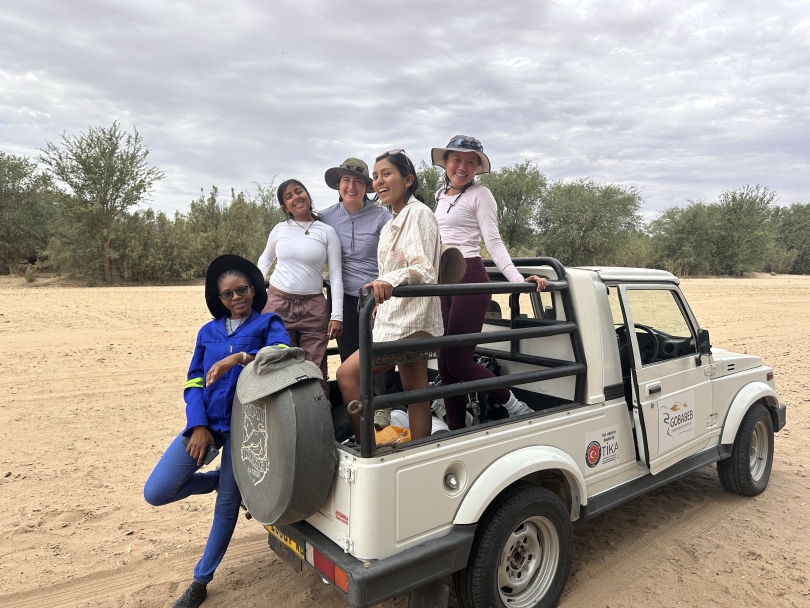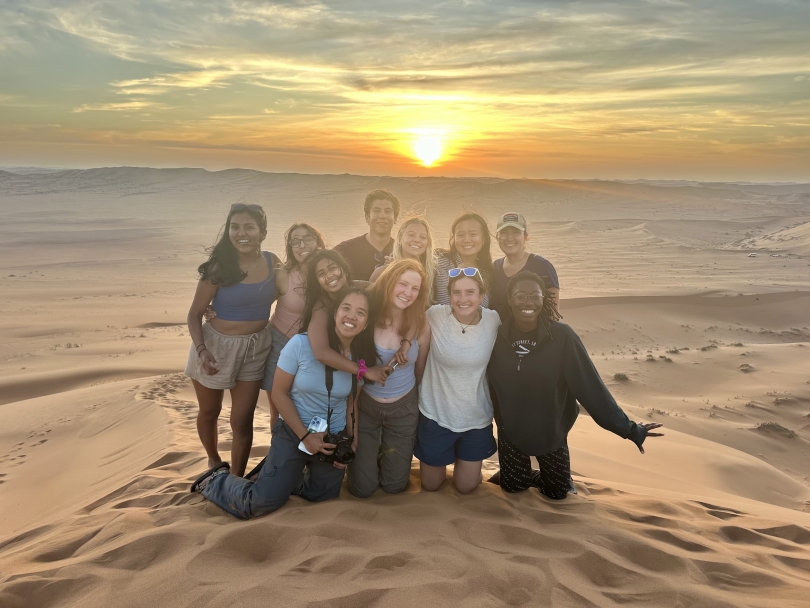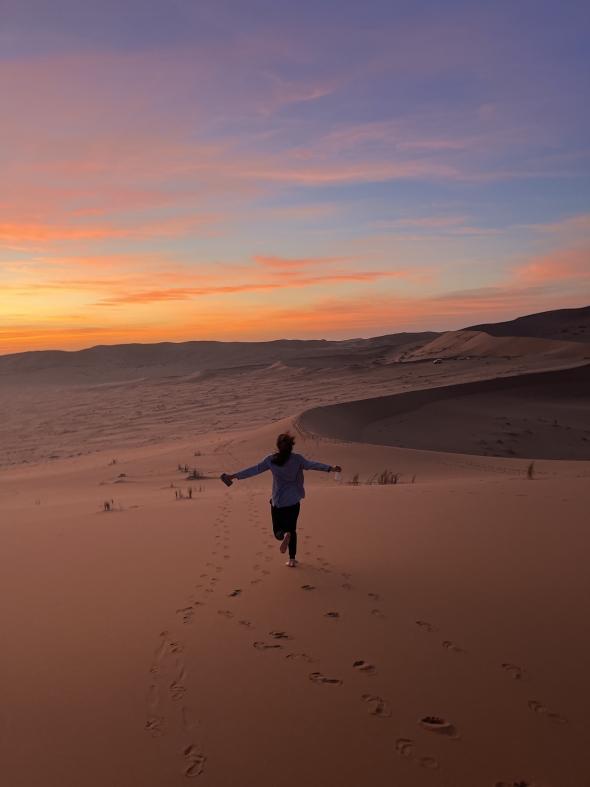
Dartmouth's Environmental Studies Foreign Study Program: Part 3
Who would have thought I would spend my senior fall identifying thousands of bugs that had fallen into our pitfall traps, sleeping under the desert stars, and running statistical analyses using JMP software? These adventures were made possible through Professor Flora Krivak-Tetley '02's course, the third and final one on our Environmental Studies Foreign Study Program (FSP): ENVS 84: Seminar on Environmental Issues of Southern Africa.
My cohort stayed as guests at the Gobabeb Namib Research Institute, nestled in the heart of the hyperarid Namib Desert. Here, we slept in tents along the ephemeral Kuiseb Riverbed (side note: by the end of the FSP, I became an expert in pitching and taking down tents). Over 11 intense field days, we collected data to assess the impact of vegetation type and distribution on invertebrate biodiversity along the Kuiseb River. This involved setting up nearly 100 pitfall traps and meticulously recording thousands of entries in our master spreadsheet—a true test of our teamwork and dedication.

In our classes at Dartmouth, we often study environmental history and laws, but this FSP gave me a newfound appreciation for the on-the-ground data collection that informs evidence-based policies. The course centered around the co-production of knowledge through group-based socio-ecological research. Since this was the first year Dartmouth students had engaged with Gobabeb since 2019, we did not directly partner with the local Topnaar community to allow time for rebuilding connections. As such, all of this year's projects focused on ecology. Our group faced our fair share of challenges, from formulating an ecological research question within our time constraints to familiarizing ourselves with the most common invertebrate and plant species in the local environment. Nevertheless, we managed to overcome these hurdles and produce a report we were proud of in less than three weeks!
The FSP wasn't all work and no play. We celebrated Halloween with a costume contest, where my roommate Daysia '25, dressed as a chicken, and my friend Liam '25, dressed as a !nara plant, stole the show. We played volleyball near our tents, hiked the surrounding sand dunes, and stayed up late at night watching movies in the main classroom. My favorite part of ENVS 84 was an overnight camping excursion without tents under the sparkling Namibian stars.

After our fieldwork, we returned to Swakopmund for five nights to analyze our data and write our final paper. I took charge of our group's results section and learned how to use JMP statistical software to visualize trends in our data. Nearing the very tail end of the study abroad program, we presented our findings to the Gobabeb community, then ventured back to Windhoek for a couple of nights, where we wrapped up our FSP journey.

And that's a wrap on my Southern Africa FSP recap! I hope you've enjoyed this glimpse into my journey. This experience has not only deepened my passion for environmental studies but also equipped me with practical research skills and unforgettable memories that will stay with me for a lifetime. If you are interested in applying for this study abroad, check out the details here. Thank you for joining me on this adventure!
















